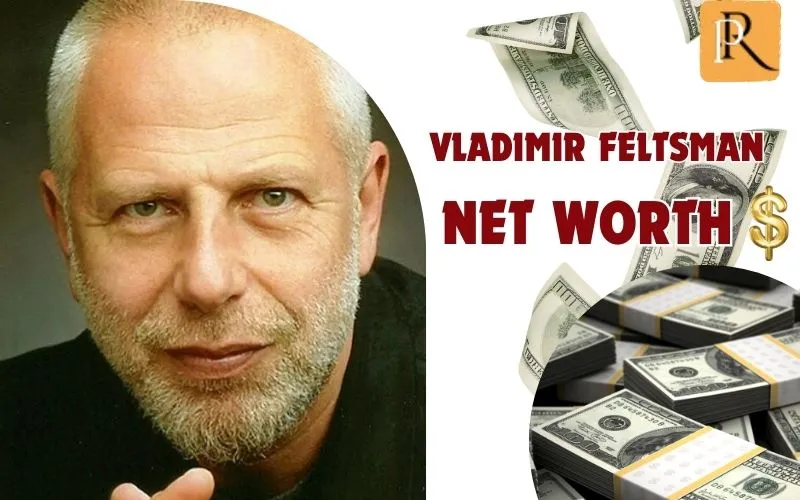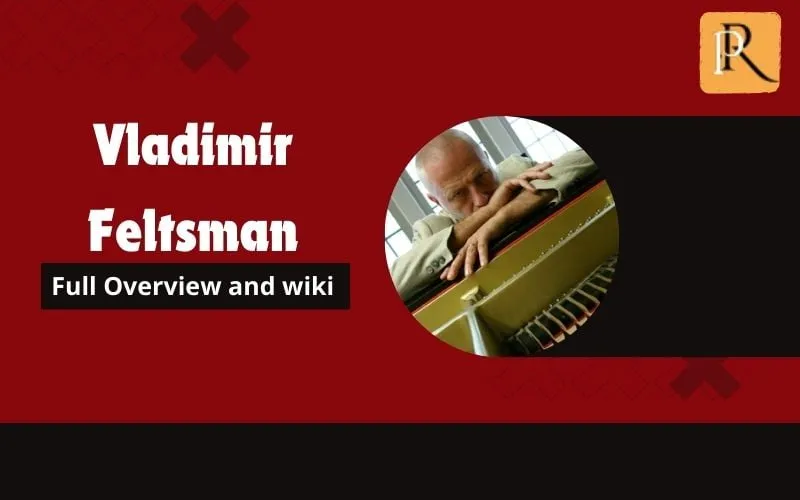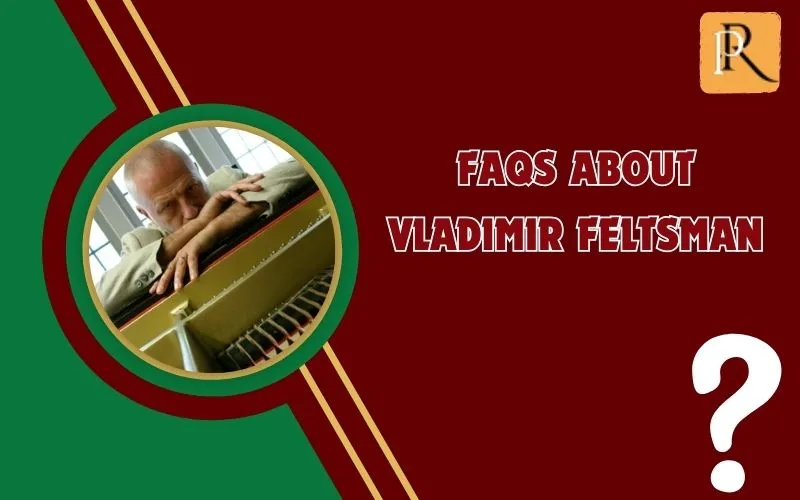Have you ever wondered about the financial achievements of some of today’s most influential classical pianists? Vladimir Feltsman stands out not only for his exceptional piano playing talent but also for his impressive net worth.
Dive into Vladimir Feltsman’s net worth, childhood, career highlights and more.
Quick information
| TRUTH | DETAIL |
|---|---|
| Real name | Vladimir Oskarovich Feltsman |
| Popular name | Vladimir Feltsman |
| Sex | male |
| Date of birth | January 8, 1952 |
| Year old | 72 |
| Parents | Oscar Feltsman (Father) |
| Siblings | do not apply |
| Place of birth | Moscow, Soviet Union |
| Nationality | Russian-American |
| Nation | Jews in Lithuania |
| Education | Moscow Conservatory, Leningrad Conservatory |
| Marital status | Married |
| Sexual orientation | Straight |
| Wife/Wife/husband | Haewon Feltsman (current), Anna (former) |
| Children | Daniel |
| Dating | do not apply |
| Net value | do not apply |
| Origin of wealth | Music, performance, teaching |
| Year of operation | 1963–present |
| Category | classic |
| Height | do not apply |
What is Vladimir Feltsman’s net worth in 2024?

Vladimir Feltsman, who is famous for his classical piano performances and contributions to education, is quite private about his finances. However, by looking at his extensive career and achievements, we can speculate that his net worth may be somewhat in line with other famous musicians in his genre. he.
By comparison, Zubin Mehta, a famous conductor, is said to have an estimated net worth of $10 million, much of it amassed through his international conducting role.
Michael Tilson Thomas, another heavyweight in the world of classical music, has a net worth of around $8 million thanks to his conducting and educational work.
Although direct comparisons with Johann Sebastian Bach are inherently speculative due to historical and economic differences, Bach’s influence and output during his lifetime suggest he would be highly regarded. in the modern sense.
Vladimir Feltsman Full overview and Wiki

Life and times
Born in chilly Moscow in 1952 to composer Oscar Feltsman, Vladimir quickly demonstrated that music ran deep in his veins. By the age of 11, he was performing with the Moscow Philharmonic Orchestra – a testament to his extraordinary talent.
Studying at the Soviet Union’s elite conservatories only honed his skills further, culminating in him winning the prestigious Grand Prix at the Marguerite Long International Piano Competition in Paris.
From the Soviet struggle to the American stages
Vladimir’s career trajectory was significantly affected by his bold decision in 1979 to apply for an exit visa, a move that left him blacklisted and banned from performing in his country.
The years that followed were difficult but shaped the resilience that shaped much of his character. It was not until 1987 that he set foot on American soil, his talent finally being appreciated on a new continent.
His journey to America began in spectacular fashion—no less than a performance at the White House for President Ronald Reagan. This debut set the stage for his memorable appearance at Carnegie Hall and marked the beginning of his great influence on American classical music.
Teaching and Heritage
Off the stage, Feltsman devoted much of his life to teaching, sharing his profound understanding of music with students at Mannes College’s New School of Music and SUNY New Paltz. His role as artistic director of the International Festival-Summer Piano Academy further cements his legacy as a nurturer of young talent.
Feltsman’s discography and his venture into historical instruments such as the fortepiano speak to his deep respect for the classical tradition and his desire to bring authentic sounds to modern audiences.
Notable is his performance of all of Mozart’s piano sonatas on the fortepiano, a feat that demonstrates not only his technical skill but also the depth of his interpretation.
A life in music
Vladimir Feltsman’s story is one of remarkable talent and resilience, of a man who crossed continents and political barriers to share his talent with the world.
His influence extended beyond his performances to shape future generations through his dedication to education and historical accuracy in music. His life’s work offers a compelling story of artistic excellence and profound personal strength.
Personal life
Vladimir Feltsman first married a woman named Anna in 1977. They had a son together, Daniel, born around 1983.
This marriage was notable because although Feltsman was allowed to travel outside the Soviet Union, his wife Anna was not allowed to travel with him. This restriction was a tactic used by the Soviet authorities to ensure his return.
Later, after moving to the United States, Feltsman married Haewon, with whom he lived in upstate New York. His personal life, although marked by the typical trials of an emigrant artist, reflected the stable family dynamic, especially during his later years in America .
Social media accounts
Frequently asked questions about Vladimir Feltsman

Who is Vladimir Feltman?
He is a renowned classical pianist and conductor with an extensive repertoire spanning from Baroque to contemporary composers.
What is notable about Feltsman’s early career?
He debuted with the Moscow Philharmonic Orchestra at age 11 and won the Grand Prix at the Marguerite Long Competition in Paris in 1971, which launched his international career.
Why did you immigrate to the United States?
He applied for an exit visa in 1979 due to restrictions on artistic freedom in the Soviet Union, which led to an eight-year ban on public performance before he was allowed to emigrate in 1987.
What was Feltsman’s first performance in the United States?
Upon arriving in America in 1987, Feltsman was warmly welcomed at the White House, where he performed his first recital in North America.
Where does Feltsman teach?
He holds the position of Distinguished Professor of Piano at SUNY New Paltz and is a lecturer at the Mannes College of Music.
Has Feltsman received any awards or recognition?
Well, among his many awards are the Grand Prix at the Marguerite Long Competition and first prize at the Concertina International Competition.
What are some highlights from Feltsman’s discography?
His discography includes more than 50 CDs of works by JS Bach, Beethoven, Chopin and other classical composers.
What special projects has Feltsman directed?
He has directed several notable projects including Masterpieces of the Russian Underground, which featured contemporary Russian music.
What is unique about Feltsman’s fortepiano performance?
Feltsman performed on the fortepiano all of Mozart’s piano sonatas and Beethoven’s Emperor Concerto, using instruments built to historic specifications.
Conclusion
Curious to learn more about the wealth of influential classical pianists like Vladimir Feltsman? At Da Nang Polytechnic.com, we lift the curtain to reveal how Feltsman’s passion and perseverance in the world of music translated into financial success.
Join us for an in-depth exploration of his earnings and what makes his career so worthwhile.
Categories: Musician
Source: dut.edu.vn





